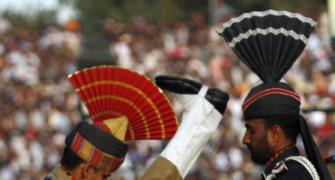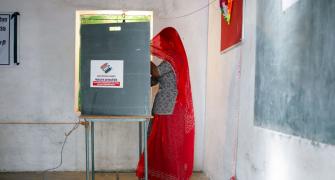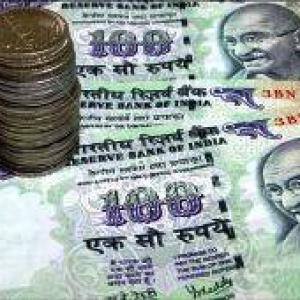 Governments like setting bilateral trade targets. It is markets and traders that must deliver.
Governments like setting bilateral trade targets. It is markets and traders that must deliver.While China-India bilateral trade targets have always been exceeded because the market conditions have turned out to be more favourable than official expectations, India-Pakistan trade languishes, or goes underground, because official policy in Pakistan continues to be myopic.
The recently concluded talks between the trade ministers of India and Pakistan, Anand Sharma and Makhdoom Amin Fahim, set a grandiose official trade target of $6 billion for 2015, against last year's $2.3 billion (while unofficial trade is already estimated to be double that), but failed to resolve the long-pending matter of Pakistan adhering to its World Trade Organisation obligation of extending the most favoured nation status to India.
Both from the standpoint of reciprocity (India granted Pakistan MFN status in 1995) and legalese, Pakistan needs to move towards fulfilling its obligations.
The objection based on the fear that domestic industry in Pakistan would be swamped by imports from India is specious.
India's generous announcement that it would not oppose the European Union's three-year tariff waiver on select commodities from Pakistan (mainly textiles), especially from areas devastated by flash floods in 2010, was a welcome gesture and is consistent with the generosity that characterises India's recent regional economic diplomacy, keeping in mind the economic asymmetry in South Asia.
Equally important was Pakistan's announcement of lifting restrictions on the import of petroleum products from India.
It makes eminent sense for Pakistan to leverage India's considerable refining capacity, which currently stands at 186 million tonnes and is expected to increase to 240 million tonnes by 2014.
Other developments such as a more liberal visa regime for businessmen, lifting of the ban on bilateral investment, and increasing the number of customs posts were long overdue.
The Pakistani political establishment would do well to respond to the groundswell building in the Pakistani business community for greater economic engagement with India.
The recent decision by the Karachi and Mumbai chambers of commerce to establish a tie-up that would co-promote both cities is just one example of the widely-held desire in both countries to grow together.
Despite recent progress by way of enhanced trade engagement between India and Bangladesh, South Asia remains one of the least economically integrated areas in the world.
The proportion of intra-regional trade to total trade is embarrassingly low as compared to other trading blocs such as the Association of South East Asian Nations, North American Free Trade Agreement and MERCOSUR.
This proportion will remain low as long as bilateral trade between India and Pakistan remains at current levels.
The history of political mistrust between the two countries is understandable but not a compelling excuse to restrict greater economic engagement any longer.
India has travelled the distance to make this happen.
Pakistan must do likewise.
If you have an opinion to express and wish to write an article on price rise, corruption, economy, technology, unemployment, business, entrepreneurship, leadership, stock market, et cetera, please mail them to us at bizdesk2003@rediffmail.com.
And, yes, kindly keep your articles between 800 and 1,000 words.
Happy writing!









